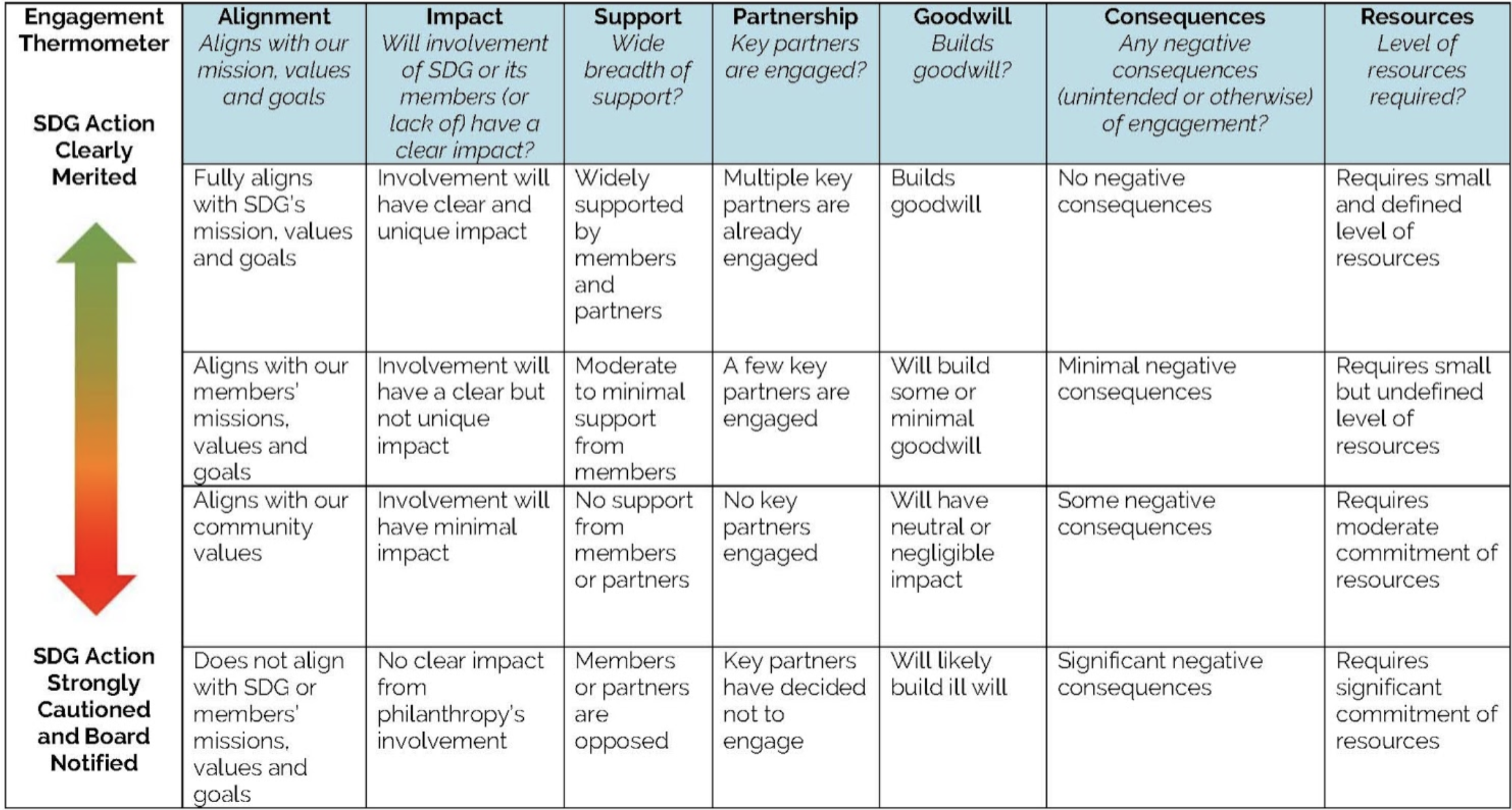Catalyst is dedicated to advancing the work of its members and the larger philanthropic sector by building relationships with policymakers and participating in activities to advance and influence public policies that foster effective philanthropy and contribute to better community solutions.
The Public Policy and Advocacy Committee establish annual policy priorities to help guide these efforts, developing and recommending both proactive and reactive positions on legislation for board approval on an ad-hoc basis.
Principles
Catalyst of San Diego and Imperial counties public policy activities are guided by the following broad principles:
- We favor public policies that promote philanthropy, encourage charitable giving, and advance the nonprofit and philanthropic sector.
- We oppose legislative or regulatory policies that adversely affect the ability of philanthropic organizations to carry out their activities.
- We support reasonable and effective public accountability of the philanthropic and nonprofit sector.
- We build and maintain relationships with public policymakers and other aligned stakeholders to enhance their knowledge, understanding, and support of the philanthropic sector.
- We encourage and support grantmaker engagement in the public policy process in ways that facilitate the achievement of their individual goals.
- We support an advocacy role for members by connecting funders with policymakers and other stakeholders to advance public policy relevant to their individual goals.
- We never endorse specific candidates.
- We promote diversity, equity, and inclusion both internally and in the support or opposition of legislative and regulatory policies.
- We support regional efforts to lower greenhouse emissions, increase climate and disaster resilience, and the creation and implementation of comprehensive and effective Climate Action Plans for our cities and counties.
- We support regional efforts to move to a community schools model in the San Diego and Imperial regions that focuses on the whole child, encourages and supports wide community involvement, and provides wraparound services and partnerships with community organizations and businesses.
Methods
Catalyst of San Diego and Imperial Counties may exercise its involvement** in public policy issues through a variety of means. These activities can include, but are not limited to:
- Disseminating research, data, and information
- Convening members and key stakeholders in dialogue, learning, and programming
- Verbal and written communications through print and online media, public testimony, joining coalitions, signing petitions, creating green/white papers, and letter writing
- Private meetings with policymakers and other stakeholders.
- Joining broader funder coalitions and alliances including Philanthropy California at a State level and the United Philanthropy Forum for Federal issues
Specific strategies and actions are determined based on each situation and applied through the Catalyst opportunity filter.
Process
Catalyst follows a process that enables thoughtful and representative deliberation, decision making, and oversight when deciding if and how the organization will be involved in particular policy issues. We leverage our Public Policy Decision Matrix to determine
recommended course of action and internal pathways to advocacy or position action:

*In 2008, San Diego Grantmakers filed a Form 5768 with the Internal Revenue Service, “Election/Revocation of Election by an Eligible 501(c)(3) Organization to Make Expenditures to Influence Legislation.” Also known as a 501(h) Election, the form allows 501(c)(3) organizations to engage in lobbying activities as defined in Internal Revenue Code sections 501(h) and 4911. The Election is considered active until revoked by the 501(c)3 organization.
**Involvement means – Catalyst acting as a body and the deployment of staff time. Opportunities for advocacy on legislation can come through Catalyst programs, collaborative groups, board and committee members, or Catalyst members and will be reviewed promptly to determine if the opportunity is to make a statement, support a statement or to take a formal position.
In the event of a dispute between an Catalyst working group/collaboration and the Board of Catalyst, the Board reserves the right to have final authority on public position.